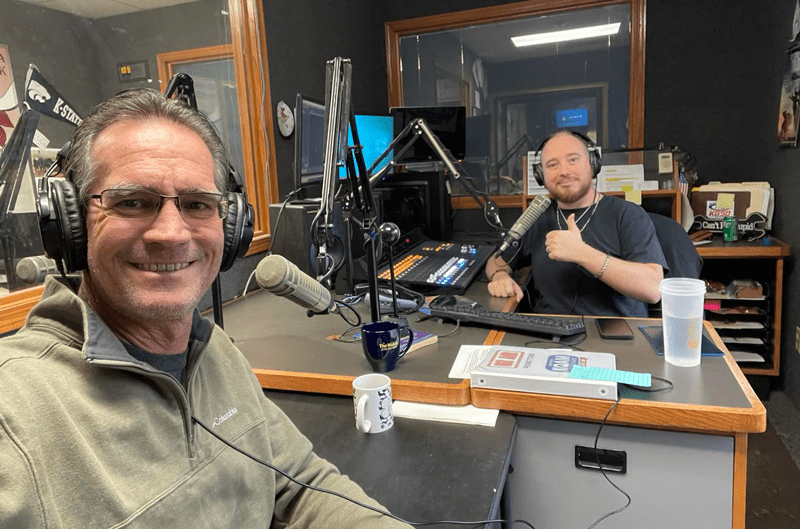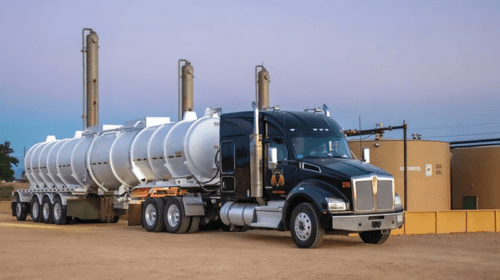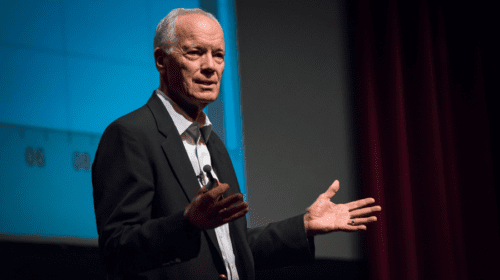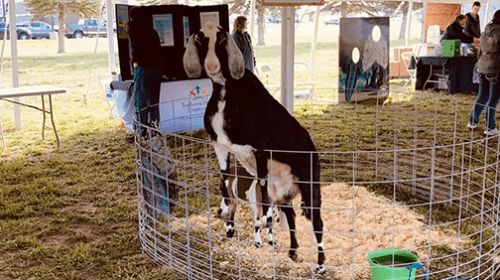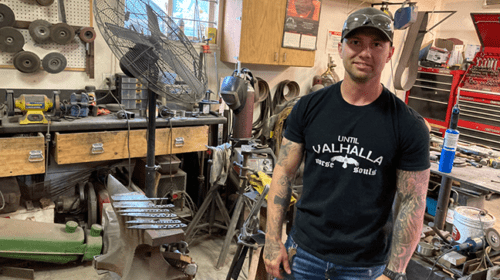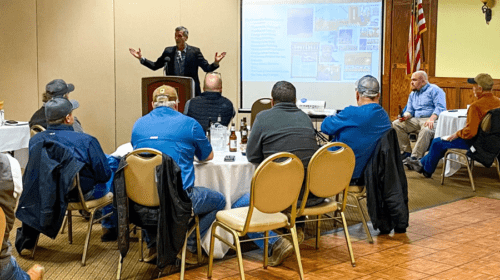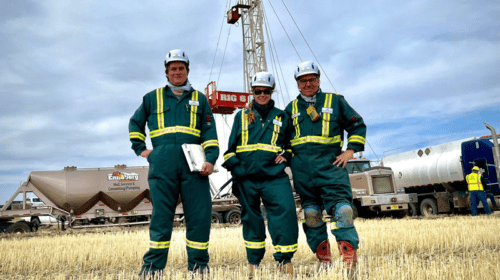Kansas, often recognized for its expansive plains and agricultural prowess, boasts a lesser-known yet significant history in the realm of oil and gas development. Here is a glimpse into the captivating narrative of how these resources have shaped the Sunflower State.
“Kansas is a unique oil and gas producing state,” Kansas Strong’s Executive Director Warren Martin says. “We’re the 11th leading producing state in the nation, yet we do not have Big Oil here in Kansas. We don’t have any of the major oil companies here.”
Martin is a philosophy graduate of Texas Tech University as well as an author, teacher, minister, artist, quasi-philosopher and speaker known for his unique teaching style. He has a passion to inspire and invest in the next generation of leaders. He currently serves as Executive Director of Kansas Strong for the promotion of the quality of life created by the oil and natural gas industry.
Martin added that many of the big oil companies got their start here, but really “only one that could even slightly be considered” a major oil producing company actually does production in the state today.

“We have a lot of pipeline companies. We have a lot of refining companies. But oil and gas production is predominantly done by local, independent oil and gas producers across the state. We are almost exclusively a marginal well state.”
According to Martin, marginal wells are those that produce 15 barrels or less – dripper wells, as they’re sometimes called.
“The average here in Kansas is two and a half barrels a day for a well, and the average oil company only has three employees,” Martin explains. “So, we’re really working on those margins, which is why a lot of the big oil companies left here decades ago to go to the Permian, North Dakota and other places to really kind of do that development.”
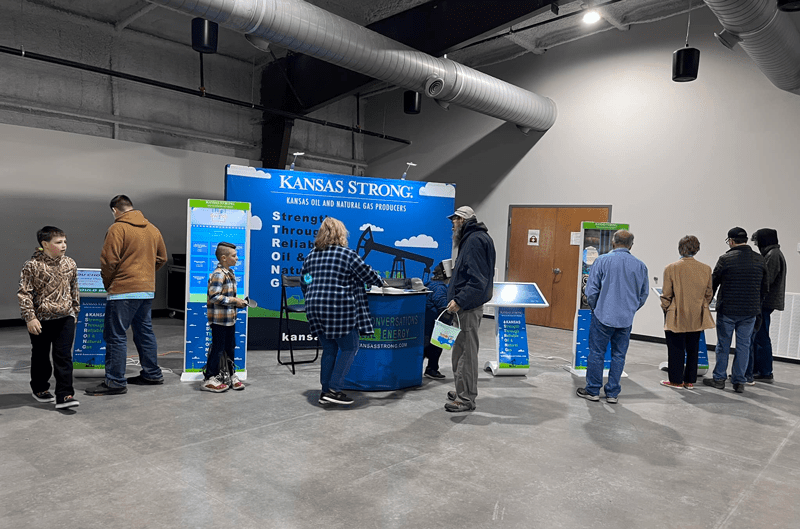
Kansas’ energy journey took hold in the late 19th century when shallow wells yielding oil and traces of natural gas were drilled in southeast Kansas. However, it was the landmark discovery in 1915 in Butler County that catapulted Kansas into the forefront of the oil industry.
The ensuing oil boom transformed Kansas, giving rise to bustling boom towns like Oil Hill. Butler County produced nine percent of the world’s oil from 1915 to 1919. That was the oil that won World War I and established Wichita as the “Air Capital of the World,” according to Martin. The economic implications were profound, contributing significantly to the state’s growth and prosperity.
“Informing the public about the many ways the Kansas oil and natural gas industry contributes to our state and our nation is an important part of our mission,” Martin says. “Kansas Strong has implemented a multi-platform campaign to reach Kansans with our message. See how Kansas Strong is helping educate and inform Kansans about the critical role our industry plays.”
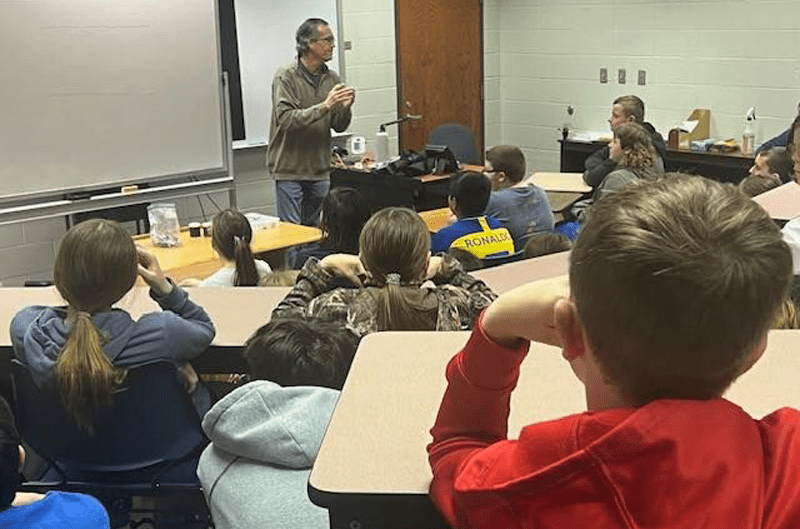
Martin has been actively educating and promoting the benefits of oil and gas, including tax revenues, community development projects and everyday uses for petroleum products. In fact, in the past calendar year, Martin has given 217 presentations to schools, associations, networking events and media programs.
“It is really about meeting people where they are and helping them understand how the lifestyle they enjoy is a result of the oil and natural gas industry, the energy and products they produce,” says Martin. “Kansas Strong is passionate about helping people understand that what happens here in the state is the first ripple in efforts that will permeate the entire industry eventually.”
“Independent producers make up 80 percent of the producers in the country, but only produce 20 percent of the oil in the United States. Take that 20 percent of oil off the market and energy prices are through the roof,” Martin says. “Some in the industry are adapting to coming methane legislation from the EPA; however, once you start shutting in wells because they can no longer be profitable in the margins, then you start a movement that will continue taking down more wells, and more companies, and the consumer will pay the price.”
“Almost all of our wells are conventional wells that are vertical in nature. The vast majority of them are hydraulically fracked when they’re put in. And we drill anywhere from on the eastern side of the state, somewhere around 500 feet is the depth that we’re drilling on the eastern side of the state.”
Martin continues citing geography and energy production areas.
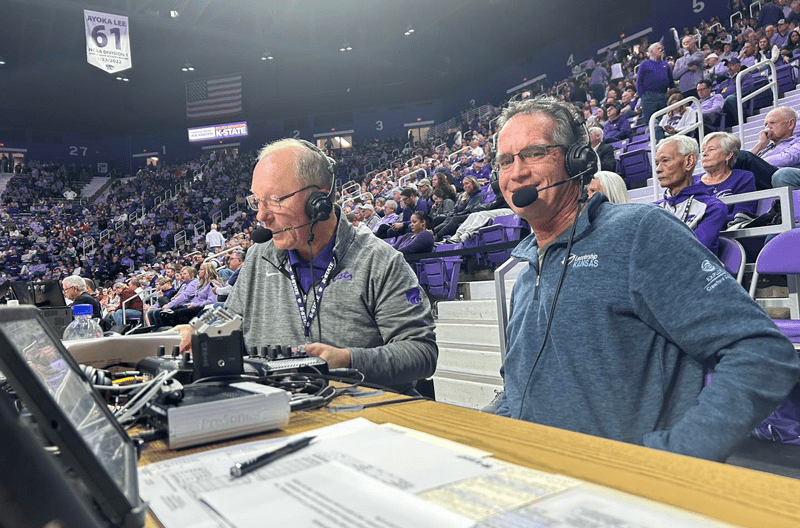
“Then you come across the Nemaha Lift that runs kind of one third of the way across from the east of the state and at the Nemaha Lift, we’re at 1500 to 2000 feet drilling depth there. And then you go to Western Kansas near the Colorado border and out there we’re drilling wells that are 6,000 plus feet on that side of the state.”
Over the decades, advancements in drilling techniques and technology have propelled Kansas’ oil and gas industry forward. These innovations have enabled the extraction of resources from previously inaccessible locations, further fueling economic development.
While the industry has evolved, Kansas’ significance could become more important than ever for a variety of reasons. Kansas’ oil and gas continue to play a vital role in both the state’s economy and the broader energy landscape of the U.S.
“We do not have the political pressure that Texas and Oklahoma have, for sure, but it’s important because if that tide turns here in Kansas, that is the canary in the coal mine that there is a huge shift that is taking place,” Martin says. “And we do already see that somewhat in the efforts that are leaning toward renewable types of energy – wind and solar – moving forward.”
“It really isn’t about transition at this point,” Martin says. “Yes, transition is happening in a local or regional scope but, the reality is, all sources of energy in a global perspective are growing: coal, oil, natural gas, nuclear, hydro, renewables… all forms. And that is good. We have to produce 26 percent more energy by the year 2050 to meet the anticipated demand. We are going to need all the energy we can produce. Now is not the time to take energy sources offline.”
Headline photo: Kansas Strong Executive Director Warren Martin doing a radio show with the Big Talker KQAM in Wichita, KS. Photos courtesy of Jason Spiess.
Jason Spiess is a multimedia journalist, entrepreneur and content consultant. Spiess has over 25 years of media experience in broadcasting, journalism, reporting and principal ownership in media companies. (Over 30 years experience if you count his adolescent years as a newspaper delivery boy learning the importance and logistics of daily distribution and monthly door-to-door bill collecting.) Spiess has worked in the areas of oil and gas, UAS and precision agriculture, health care, cannabis, agriculture, real estate, government affairs and economic development. Spiess is the host of two radio programs, Building the Bakken and Coffee & Capitalism, and three specialty programs, MonDak OilField Review, Corporate Ink and UnStuck, that carry a radio network that spans five states and two countries. Spiess is a North Dakota native and graduated from North Dakota State University.
Oil and gas operations are commonly found in remote locations far from company headquarters. Now, it's possible to monitor pump operations, collate and analyze seismic data, and track employees around the world from almost anywhere. Whether employees are in the office or in the field, the internet and related applications enable a greater multidirectional flow of information – and control – than ever before.

